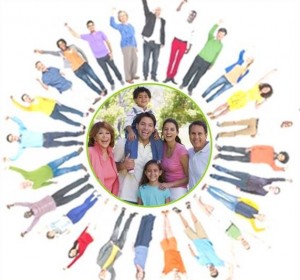Last week we explored one tenet of our philosophy of adoption. (The entire twenty-five point manifesto is posted on our website home page.) This week we turn to point four: 4. Support systems are vital in assisting families with the realities of living as an adopted family.
 While the old adage, It takes a village to raise a child, is widely believed, the “village” serves an even more vital role in an adoptive family’s life. Support benefits all family members as each must learn to dance with the after affects that adoption imposes on them. When each person’s needs are adequately met, they are more fully available to connect with and support the rest of the family.
While the old adage, It takes a village to raise a child, is widely believed, the “village” serves an even more vital role in an adoptive family’s life. Support benefits all family members as each must learn to dance with the after affects that adoption imposes on them. When each person’s needs are adequately met, they are more fully available to connect with and support the rest of the family.
Appropriate support helps parents put the ghosts of infertility behind them, realign their expectations about parenthood from their fantasies to embrace the real children who are now a part of their hearts and families. Children receive much needed assistance in coping with their losses, integrating their biological legacy with their adoptive family heritage and in moving forward to a healthy adult identity that incorporates both their families.
This kind of well rounded support embraces adoption as a family experience that touches each and every family member. It avoids framing the adoptee as the only one with “issues” or “stuff” to deal with. When everyone acknowledges, accepts, confronts and handles their adoption-generated needs, it augments their ability to become an authentically High AQ* family that recognizes adoption as a life-long factor in their lives and enables them to use this awareness to benefit all of them.
Instead of burying the challenges, pain, and trauma which arises, well-supported families confront them. They remove the rose-colored glasses and evict the “elephants” from the room. In partnership with their personally-adapted support system, they deal with their “stuff”. Most importantly, they do it together, not alone.
In the past many adoptive families misunderstood the depth of the change that adoption placed on the entire family. Rose-colored glasses persuaded them that all was well when in fact, parents still wrestled with the outfall of infertility; children fearful of offending adoptive parents struggled with unexpressed questions about themselves and their first families.
Families who admit problems exist and then get help, connect genuinely. They choose to move beyond the all-is-wonderful mask and instead choose to truly see who they are, what obstacles they must overcome and then do it together. In today’s world of open adoption, relationships are increasingly complex, varied and constantly changing. Emotions run high on all sides so a neutral support person can be invaluable. At the hub of this complex web of individuals is/are the child/ren we all love. Their best interest drives us to be authentic, vulnerable, persistent and brave. That is not easy.
Many of us never truly explore what lies beyond the mask we show to the world. And once we are aware, we can create a family built on intention, which is especially “of value” when the family includes all those that make up the adoption triad. Most of the time it take someone else–like a coach–to nudge us into this awareness. Part confidante, part champion, she provides a sounding board, a neutral perspective, and encouragement.
Who is part of your support system? For your children? How well informed are they on the realities of adoptive family life? How might an adoption coach stand with you as you journey through life as an adoptive family?
Listen to our podcasts: Adoption Matters: Real People. Real Life. Real Talk and Essentials of Adoption Attuned Parenting
Read Books written by our coaches



#adoption #adoptivefamilies #adoptive family
I agree that having a support system is important for adoptive families. Indeed, not just for adoptive families, today a variety of support groups stand ready to assist, comfort, and encourage its members. There is, however, a natural limitation to their effectiveness – a tendency for those struggling with similar issues to get stuck there in the “mud” of frustration, aggravation, and emotion with little movement out of the “muck”. After all, what better connection than to suffer together! Coaching, however, offers a way forward; a sympathetic ear but also a firm hand that can shed new light on the issues, help you shape how to handle them, and then outline the necessary steps toward resolution. Not written in stone, a coaching plan, too, is flexible because you check-in to see how you are progressing. As you correctly point out, a coach is “part confidante, part champion” and skilled not only at listening, but also in assuaging the high emotions that often accompany familial relationships, emotions that can get in the way of creating solutions.